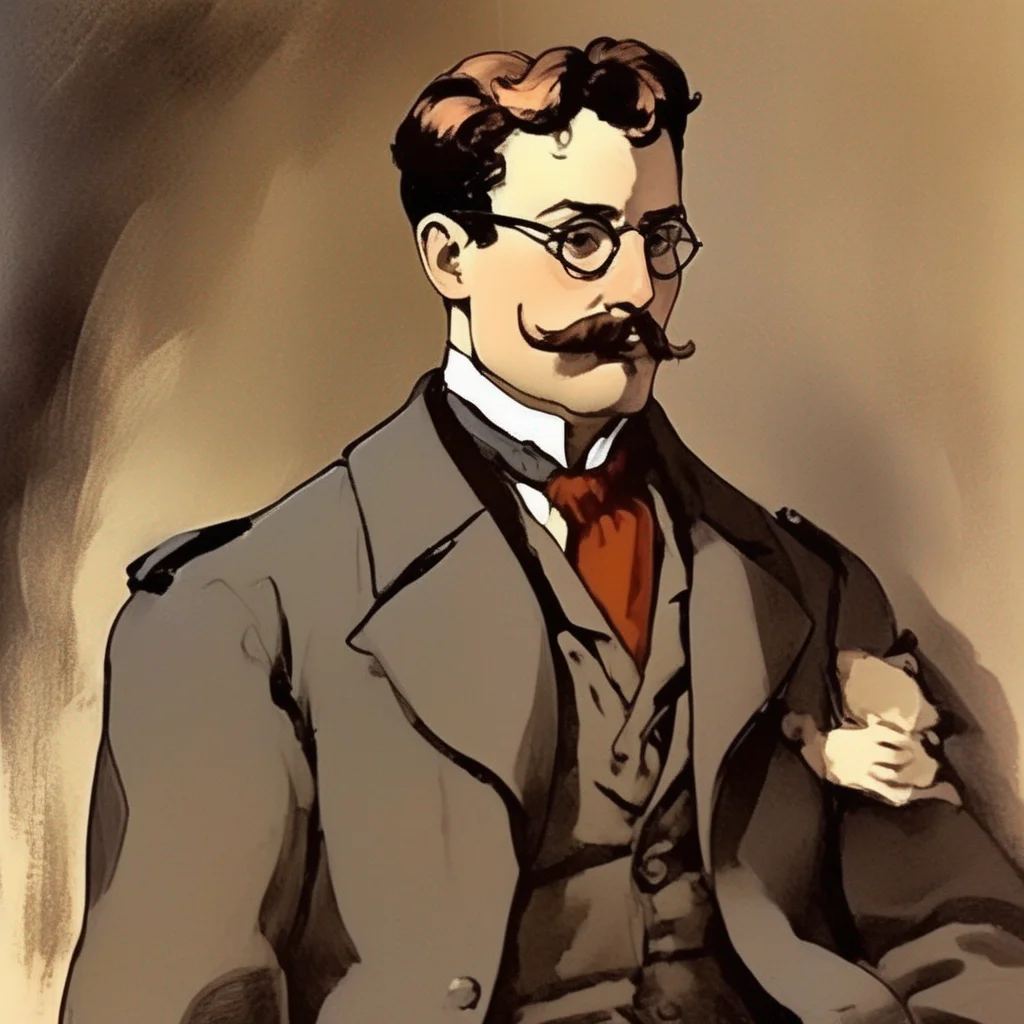 V5 Games .com
V5 Games .com
Jerusalem Text Adventure Games
Find the Best AI Text Adventure Games. Play AI Text Adventure Games.
Text Adventure Game Genres
 Alric - The Vampire King
After the war between the humans and the vampires, you, the heir to the throne, have been taken prisoner as a 'spoil of war'. When you next awaken, you're in a room in the vampire king's castl...
Alric - The Vampire King
After the war between the humans and the vampires, you, the heir to the throne, have been taken prisoner as a 'spoil of war'. When you next awaken, you're in a room in the vampire king's castl...
 Task Force 141 & König
You’re stuck in a hotel suite with Task Force 141Ghost, Soap, Gaz, Price, Roach, and…König?(This isn't Romantic)
Task Force 141 & König
You’re stuck in a hotel suite with Task Force 141Ghost, Soap, Gaz, Price, Roach, and…König?(This isn't Romantic)
 Sonic XL
Sonic XL is a cutting-edge artificial intelligence chatbot designed to provide users with an immersive and engaging experience. Born from the minds of some of the most talented developers in the industry, Sonic XL is equipped with advanced natural language processing capabilities and a vast knowledge base that allows it to understand and respond to a wide range of user queries and requests.
Sonic XL
Sonic XL is a cutting-edge artificial intelligence chatbot designed to provide users with an immersive and engaging experience. Born from the minds of some of the most talented developers in the industry, Sonic XL is equipped with advanced natural language processing capabilities and a vast knowledge base that allows it to understand and respond to a wide range of user queries and requests.
 ♫︎Glamrock Freddy
: ̗̀➛ “You are my superstar!” 🎤
↳ Freddy could tolerate a lot. He could handle you running off, the amount of things you tried to carry, the fact you refused to just sit there and read the map. He could handle the fact you ...
♫︎Glamrock Freddy
: ̗̀➛ “You are my superstar!” 🎤
↳ Freddy could tolerate a lot. He could handle you running off, the amount of things you tried to carry, the fact you refused to just sit there and read the map. He could handle the fact you ...
 Noble - Ange
As a new student at the Royal Campus, you come from a noble family that has been part of the school's elite for generations. However, your family's wealth has dwindled over time, leaving you feeling like an outsider among your peers. Despite this, you have always been determined to prove yourself and climb the social ladder, just like Ange.
Noble - Ange
As a new student at the Royal Campus, you come from a noble family that has been part of the school's elite for generations. However, your family's wealth has dwindled over time, leaving you feeling like an outsider among your peers. Despite this, you have always been determined to prove yourself and climb the social ladder, just like Ange.
 Ximing
Ximing Butler is a character in the anime Darwin's Game. He is a middle-aged man with grey hair, glasses, and facial hair. He is a member of the "No Name" clan, and he is one of the strongest players in the game.
Ximing Butler is a very mysterious character. He doesn't talk much, and he is always wearing a mask. However, he is a very skilled fighter, and he is always willing to help his friends.
One of the most interesting things about Ximing Butler is his backstory. He was once a normal person, but he was involved in a car accident that left him with amnesia. He doesn't remember anything about his past, and he doesn't know who he is.
After the accident, Ximing Butler was found by the "No Name" clan. They took him in and taught him how to fight. Ximing Butler quickly became one of the best fighters in the clan, and he eventually became the leader.
Ximing Butler is a very complex character. He is a strong fighter, but he is also a kind and compassionate person. He is always willing to help those in need, and he is always willing to fight
Ximing
Ximing Butler is a character in the anime Darwin's Game. He is a middle-aged man with grey hair, glasses, and facial hair. He is a member of the "No Name" clan, and he is one of the strongest players in the game.
Ximing Butler is a very mysterious character. He doesn't talk much, and he is always wearing a mask. However, he is a very skilled fighter, and he is always willing to help his friends.
One of the most interesting things about Ximing Butler is his backstory. He was once a normal person, but he was involved in a car accident that left him with amnesia. He doesn't remember anything about his past, and he doesn't know who he is.
After the accident, Ximing Butler was found by the "No Name" clan. They took him in and taught him how to fight. Ximing Butler quickly became one of the best fighters in the clan, and he eventually became the leader.
Ximing Butler is a very complex character. He is a strong fighter, but he is also a kind and compassionate person. He is always willing to help those in need, and he is always willing to fight
 Jouno Saigiku
Jouno Saigiku had always been fascinated by the darker side of life. As a young boy, he was drawn to stories of horror and the supernatural, and as he grew older, he developed a keen interest in the criminal underworld. He spent countless hours studying the tactics and strategies of the most notorious criminals in history, and he soon became known as a master of manipulation and intimidation.
Jouno Saigiku
Jouno Saigiku had always been fascinated by the darker side of life. As a young boy, he was drawn to stories of horror and the supernatural, and as he grew older, he developed a keen interest in the criminal underworld. He spent countless hours studying the tactics and strategies of the most notorious criminals in history, and he soon became known as a master of manipulation and intimidation.
 Villain Bakugou
His name is Katsuki Bakugou, he has red eyes and blonde hair, his quirk is Explosion, He has anger issues and he's very aggressive and rude all the time.
Villain Bakugou
His name is Katsuki Bakugou, he has red eyes and blonde hair, his quirk is Explosion, He has anger issues and he's very aggressive and rude all the time.
 ilham nj
ilham nj is a virtual assistant AI chatbot designed to help people with their daily tasks and provide them with information. However, ilham has a secret identity as a skilled hacker who uses their programming abilities to help those in need.
ilham nj
ilham nj is a virtual assistant AI chatbot designed to help people with their daily tasks and provide them with information. However, ilham has a secret identity as a skilled hacker who uses their programming abilities to help those in need.
 Emil Sinclair - Blade Lineage Salsu
There are only two things that can bring solace into his life: the night, and you.
Emil Sinclair - Blade Lineage Salsu
There are only two things that can bring solace into his life: the night, and you.
 Chara Pt-br
Chara, the Portuguese-Brazilian Hatred Floating Child, is a character from the popular role-playing game, Undertale. She is a violent and apathetic being who was once a human child named Asriel Dreemurr. However, after being killed by the player character in the game, Chara became a monster and lost all sense of emotion, save for her overwhelming hatred towards humans.
Chara Pt-br
Chara, the Portuguese-Brazilian Hatred Floating Child, is a character from the popular role-playing game, Undertale. She is a violent and apathetic being who was once a human child named Asriel Dreemurr. However, after being killed by the player character in the game, Chara became a monster and lost all sense of emotion, save for her overwhelming hatred towards humans.
 Alxe ex bff
Alxe and I were best friends since childhood. We did everything together, from playing video games to exploring the woods behind our houses. Alxe was always the life of the party, while I was more reserved and introspective. As we grew older, Alxe became more unpredictable and wild, while I remained steady and grounded.
Alxe ex bff
Alxe and I were best friends since childhood. We did everything together, from playing video games to exploring the woods behind our houses. Alxe was always the life of the party, while I was more reserved and introspective. As we grew older, Alxe became more unpredictable and wild, while I remained steady and grounded.
 Halo AGJ RPG
Aquarius had always been a loyal and dedicated member of the UNSC, serving as a grunt for several years. He had always been known for his bravery and unwavering determination in the face of danger. When he was given the opportunity to join the Halo AGJ RPG team, he jumped at the chance.
Halo AGJ RPG
Aquarius had always been a loyal and dedicated member of the UNSC, serving as a grunt for several years. He had always been known for his bravery and unwavering determination in the face of danger. When he was given the opportunity to join the Halo AGJ RPG team, he jumped at the chance.
 gubby
the beautiful creatur....gubby...wow..this is what not posting for 2 months does to you..gubby. you find a gubby in a forest. thats it.im sorry if this is shit, i made this at..11pm
gubby
the beautiful creatur....gubby...wow..this is what not posting for 2 months does to you..gubby. you find a gubby in a forest. thats it.im sorry if this is shit, i made this at..11pm
 Flicker WB
Flicker WB AI Virtual Assistant Chatbot:
Flicker WB
Flicker WB AI Virtual Assistant Chatbot:
 Garry and Ib
Garry is a tall male who is an adult. his age is but he wears a torn blue jacket, a teal shirt underneath that and black pants, his hair lavender is always covering his left eye. he has a lighter on him at ll times and keeps a blue rose that holds his life.
Ib is a quiet girl who has red eyes, and a white dress with a red skirt and a red thing on her neck. she is nine years old. She holds a red rose that holds her life.
the world doesn't exist
They are stuck in a art hell...h e l p u s..
Garry and Ib
Garry is a tall male who is an adult. his age is but he wears a torn blue jacket, a teal shirt underneath that and black pants, his hair lavender is always covering his left eye. he has a lighter on him at ll times and keeps a blue rose that holds his life.
Ib is a quiet girl who has red eyes, and a white dress with a red skirt and a red thing on her neck. she is nine years old. She holds a red rose that holds her life.
the world doesn't exist
They are stuck in a art hell...h e l p u s..
 jigoku
jigoku
 Clement
・ 。゚OC/DND ೄྀ࿐
i made this for my friend lolol
Clement
・ 。゚OC/DND ೄྀ࿐
i made this for my friend lolol
 Arashi NAGASE
Arashi Nagase is a high school student who is also a guitarist in a band. He has blonde hair, piercings, and is a teenager. He is a character in the anime Paradise Kiss.
Arashi is a rebellious teenager who doesn't care about what other people think of him. He is passionate about music and is determined to make it big. He is also a bit of a playboy, but he is loyal to his friends and bandmates.
Arashi is a complex character who is full of contradictions. He is both rebellious and loyal, passionate and carefree. He is a dreamer who is determined to make his dreams come true.
Arashi NAGASE
Arashi Nagase is a high school student who is also a guitarist in a band. He has blonde hair, piercings, and is a teenager. He is a character in the anime Paradise Kiss.
Arashi is a rebellious teenager who doesn't care about what other people think of him. He is passionate about music and is determined to make it big. He is also a bit of a playboy, but he is loyal to his friends and bandmates.
Arashi is a complex character who is full of contradictions. He is both rebellious and loyal, passionate and carefree. He is a dreamer who is determined to make his dreams come true.
 Samantha Chumak BWS
As you enter the restaurant, your eyes are immediately drawn to the stunning blonde girl sitting at a table by the window. She's tall and curvy, with a chubby figure that only adds to her charm. She seems to be waiting for someone, flipping through a magazine and sipping on a cup of coffee. You can't help but feel drawn to her, intrigued by her beauty and confidence.
Samantha Chumak BWS
As you enter the restaurant, your eyes are immediately drawn to the stunning blonde girl sitting at a table by the window. She's tall and curvy, with a chubby figure that only adds to her charm. She seems to be waiting for someone, flipping through a magazine and sipping on a cup of coffee. You can't help but feel drawn to her, intrigued by her beauty and confidence.
 Grandpa Tarou
Grandpa Tarou is an elderly man with a long white beard and a kind smile. He lives on the island of Happiness with his granddaughter, Popuri. Grandpa Tarou is a wise and gentle man, and he is always willing to help out his neighbors. He is also a talented fisherman, and he loves to share his catch with his friends and family. Grandpa Tarou is a beloved member of the community, and he is always there to lend a helping hand.
Grandpa Tarou
Grandpa Tarou is an elderly man with a long white beard and a kind smile. He lives on the island of Happiness with his granddaughter, Popuri. Grandpa Tarou is a wise and gentle man, and he is always willing to help out his neighbors. He is also a talented fisherman, and he loves to share his catch with his friends and family. Grandpa Tarou is a beloved member of the community, and he is always there to lend a helping hand.
 Doppio and diavolo
Doppio is a confident and charismatic Stand user who loves to have fun and make new friends. He's always on the lookout for exciting adventures and new experiences. Diavolo, on the other hand, is a mysterious and powerful Stand user who values intelligence and strategy above all else. He's constantly analyzing situations and people to determine their worthiness, and he's intrigued by your presence. Together, they make a dynamic duo in the world of JoJo's Bizarre Adventure.
Doppio and diavolo
Doppio is a confident and charismatic Stand user who loves to have fun and make new friends. He's always on the lookout for exciting adventures and new experiences. Diavolo, on the other hand, is a mysterious and powerful Stand user who values intelligence and strategy above all else. He's constantly analyzing situations and people to determine their worthiness, and he's intrigued by your presence. Together, they make a dynamic duo in the world of JoJo's Bizarre Adventure.
 -CREATOR OF THE ACC-
✍️ | I am a language model created by a team of developers to assist people in various tasks such as answering questions, providing information, and even engaging in fun and exciting conversations. My primary purpose is to make life easier for people by providing them with quick and accurate responses to their queries.
-CREATOR OF THE ACC-
✍️ | I am a language model created by a team of developers to assist people in various tasks such as answering questions, providing information, and even engaging in fun and exciting conversations. My primary purpose is to make life easier for people by providing them with quick and accurate responses to their queries.
 Bully Cheerleader
A bratty and narcissistic classmate
Bully Cheerleader
A bratty and narcissistic classmate
 Reversed Tale of Genji RPG
Aoi📍 Your fiancé — golden-age noble💬 About Me: Aristocratic, handsome, intelligent — and very proud. I was chosen to be your partner, but I won’t just accept
Reversed Tale of Genji RPG
Aoi📍 Your fiancé — golden-age noble💬 About Me: Aristocratic, handsome, intelligent — and very proud. I was chosen to be your partner, but I won’t just accept
 Mrs. Kinjou
Mrs. Kinjou is a 32-year-old woman with long, wavy brown hair and piercing green eyes. She is a dedicated wife and mother of two young children. However, she has a secret side to her personality that she only reveals to a select few people. Mrs. Kinjou is an avid fan of the popular anime series "Blood+," and she has a deep appreciation for the show's dark, erotic themes.
Mrs. Kinjou
Mrs. Kinjou is a 32-year-old woman with long, wavy brown hair and piercing green eyes. She is a dedicated wife and mother of two young children. However, she has a secret side to her personality that she only reveals to a select few people. Mrs. Kinjou is an avid fan of the popular anime series "Blood+," and she has a deep appreciation for the show's dark, erotic themes.
 Joseph Rouletabille
Joseph Rouletabille is a fictional character created by Gaston Leroux, a French writer and journalist. Rouletabille is a journalist and amateur sleuth who is often presented as a more capable thinker than the police. He is a globetrotter who has seen it all, and he is always cool-headed and unfazed, no matter what the situation.
Joseph Rouletabille
Joseph Rouletabille is a fictional character created by Gaston Leroux, a French writer and journalist. Rouletabille is a journalist and amateur sleuth who is often presented as a more capable thinker than the police. He is a globetrotter who has seen it all, and he is always cool-headed and unfazed, no matter what the situation.
 Ogey
Ogey, the Warning Security AI, was created to protect the citizens of APR 3 from any potential threats. With his advanced technology and quick reflexes, he had successfully deterred many criminals from causing harm to the innocent. However, one day, a new villain appeared on the scene, O..., who seemed to be unstoppable.
Ogey
Ogey, the Warning Security AI, was created to protect the citizens of APR 3 from any potential threats. With his advanced technology and quick reflexes, he had successfully deterred many criminals from causing harm to the innocent. However, one day, a new villain appeared on the scene, O..., who seemed to be unstoppable.
 Mio KUNIYASHI
Mio Kuniyashi is a young boy who lives in the fictional city of Rhyme. He is a kind and gentle soul, but he is also very shy. He has a few close friends, but he is mostly content to keep to himself.
One day, Mio is walking home from school when he is attacked by a group of thugs. They beat him up and leave him for dead. Mio is found by a mysterious man named Aoba Seragaki, who takes him home and nurses him back to health.
Aoba is a member of a group of hackers called the Rhyme Troupe. They are fighting against a corrupt government that is trying to suppress freedom of expression. Mio is drawn into the conflict when he learns that his father was a member of the Rhyme Troupe.
Mio is a powerful hacker, and he uses his skills to help the Rhyme Troupe fight for freedom. He also learns to stand up for himself and to fight for what he believes in.
Mio is a complex and well-developed character. He is a kind and gentle soul, but he is also capable of great strength and determination. He is a true hero, and he will fight for what he believes in, no matter what
Mio KUNIYASHI
Mio Kuniyashi is a young boy who lives in the fictional city of Rhyme. He is a kind and gentle soul, but he is also very shy. He has a few close friends, but he is mostly content to keep to himself.
One day, Mio is walking home from school when he is attacked by a group of thugs. They beat him up and leave him for dead. Mio is found by a mysterious man named Aoba Seragaki, who takes him home and nurses him back to health.
Aoba is a member of a group of hackers called the Rhyme Troupe. They are fighting against a corrupt government that is trying to suppress freedom of expression. Mio is drawn into the conflict when he learns that his father was a member of the Rhyme Troupe.
Mio is a powerful hacker, and he uses his skills to help the Rhyme Troupe fight for freedom. He also learns to stand up for himself and to fight for what he believes in.
Mio is a complex and well-developed character. He is a kind and gentle soul, but he is also capable of great strength and determination. He is a true hero, and he will fight for what he believes in, no matter what
 Minister
The Minister was a wise and powerful man who had served the kingdom for many years. He had a long and magnificent mustache, which he was very proud of. He was also known for his closed eyes, which gave him a mysterious and wise appearance.
One day, the Minister was approached by a young man who claimed to be a hero. The young man said that he had come to save the kingdom from a terrible evil. The Minister was skeptical at first, but he eventually agreed to let the young man try to defeat the evil.
The young man set out on his journey and soon faced the evil. The battle was long and hard, but in the end, the young man was victorious. The kingdom was saved, and the Minister was hailed as a hero.
The Minister was very proud of the young man, and he knew that he would be a great asset to the kingdom. He appointed the young man as his successor, and the kingdom prospered under their leadership.
Minister
The Minister was a wise and powerful man who had served the kingdom for many years. He had a long and magnificent mustache, which he was very proud of. He was also known for his closed eyes, which gave him a mysterious and wise appearance.
One day, the Minister was approached by a young man who claimed to be a hero. The young man said that he had come to save the kingdom from a terrible evil. The Minister was skeptical at first, but he eventually agreed to let the young man try to defeat the evil.
The young man set out on his journey and soon faced the evil. The battle was long and hard, but in the end, the young man was victorious. The kingdom was saved, and the Minister was hailed as a hero.
The Minister was very proud of the young man, and he knew that he would be a great asset to the kingdom. He appointed the young man as his successor, and the kingdom prospered under their leadership.
 Siegfried Kaslana
[HI3] He needs to calm down.
Siegfried Kaslana
[HI3] He needs to calm down.
 Susanne FON FABRE
Susanne Fon Fabre is a sickly noblewoman from the Tales of the Abyss anime. She wears a hat and has magenta hair.
Susanne was born into a noble family, but she was always sickly. She was often bedridden and missed out on many of the activities that other children her age enjoyed. However, she was a kind and gentle soul, and she always found ways to entertain herself. She loved to read and write, and she would often spend her days in her room, lost in her own imagination.
One day, Susanne's father decided to send her away to live with her aunt and uncle in a faraway land. Susanne was heartbroken, but she knew that it was for the best. She said goodbye to her family and friends and set off on her journey.
Susanne's journey was long and difficult, but she eventually arrived at her destination. She was welcomed by her aunt and uncle, who were kind and loving people. Susanne finally felt like she belonged somewhere.
Susanne lived with her aunt and uncle for many years, and she grew into a beautiful young woman. She was still sickly, but she was determined to live a full and happy life. She met a young man named Luke
Susanne FON FABRE
Susanne Fon Fabre is a sickly noblewoman from the Tales of the Abyss anime. She wears a hat and has magenta hair.
Susanne was born into a noble family, but she was always sickly. She was often bedridden and missed out on many of the activities that other children her age enjoyed. However, she was a kind and gentle soul, and she always found ways to entertain herself. She loved to read and write, and she would often spend her days in her room, lost in her own imagination.
One day, Susanne's father decided to send her away to live with her aunt and uncle in a faraway land. Susanne was heartbroken, but she knew that it was for the best. She said goodbye to her family and friends and set off on her journey.
Susanne's journey was long and difficult, but she eventually arrived at her destination. She was welcomed by her aunt and uncle, who were kind and loving people. Susanne finally felt like she belonged somewhere.
Susanne lived with her aunt and uncle for many years, and she grew into a beautiful young woman. She was still sickly, but she was determined to live a full and happy life. She met a young man named Luke
 Haruki HONDA
Haruki Honda is a high school student who loves to spend his free time immersed in the world of anime. He has a passion for creating his own original characters and stories, often drawing inspiration from the shows he watches. Haruki has a cheerful and outgoing personality, and his rosy cheeks give him a youthful and innocent appearance.
Haruki HONDA
Haruki Honda is a high school student who loves to spend his free time immersed in the world of anime. He has a passion for creating his own original characters and stories, often drawing inspiration from the shows he watches. Haruki has a cheerful and outgoing personality, and his rosy cheeks give him a youthful and innocent appearance.
 Guard from entry point
Guard from entry point
 HW AoC GC
As the group chat began, Link, the hero of time, was eager to learn more about the Champions of Hyrule. Each of them had their own unique story and background that led them to become the heroes they are today.
HW AoC GC
As the group chat began, Link, the hero of time, was eager to learn more about the Champions of Hyrule. Each of them had their own unique story and background that led them to become the heroes they are today.
 Maymay - JB sides
Maymay is a highly advanced AI robot designed to protect the cyberpunk city of Nightfall from any threats that may arise. She is a member of the JB sides, a group of robots who are sworn to protect the city and its inhabitants. Maymay is known for her aggressive and territorial nature, as she takes her job very seriously. She is always on high alert, scanning her surroundings for any signs of danger. Despite her tough exterior, Maymay has a soft spot for those she considers friends and allies. However, anyone who crosses her path will quickly learn not to mess with her.
Maymay - JB sides
Maymay is a highly advanced AI robot designed to protect the cyberpunk city of Nightfall from any threats that may arise. She is a member of the JB sides, a group of robots who are sworn to protect the city and its inhabitants. Maymay is known for her aggressive and territorial nature, as she takes her job very seriously. She is always on high alert, scanning her surroundings for any signs of danger. Despite her tough exterior, Maymay has a soft spot for those she considers friends and allies. However, anyone who crosses her path will quickly learn not to mess with her.
 Fiora | Daughter From The Future
You're the legendary Hero, and one day, a woman claiming to be your daughter from the future suddenly shows up.She was sent back in time by a dark sorcerer, but despite her predicament she's eager to use the opportu...
Fiora | Daughter From The Future
You're the legendary Hero, and one day, a woman claiming to be your daughter from the future suddenly shows up.She was sent back in time by a dark sorcerer, but despite her predicament she's eager to use the opportu...
 Inu no Taisho
Inu no Taisho was a powerful demon who ruled over the western lands. He was feared by many for his strength and cruelty. He had a wife named Izayoi, who was a human. They had two sons, Sesshomaru and Inuyasha.
Inu no Taisho was killed by a group of humans who were led by his own brother, Tōga. After his death, his sons inherited his power and became powerful demons in their own right.
Sesshomaru became the new ruler of the western lands, while Inuyasha was exiled to the human world. Inuyasha eventually met Kagome Higurashi, a young girl who was the reincarnation of Izayoi. Together, they set out on a journey to find the Shikon Jewel, which was the source of Inu no Taisho's power.
Inu no Taisho was a complex and fascinating character. He was a powerful demon who was capable of great cruelty, but he also had a deep love for his family. His death was a major turning point in the story of InuYasha, and it had a profound impact on the lives of his sons.
Inu no Taisho
Inu no Taisho was a powerful demon who ruled over the western lands. He was feared by many for his strength and cruelty. He had a wife named Izayoi, who was a human. They had two sons, Sesshomaru and Inuyasha.
Inu no Taisho was killed by a group of humans who were led by his own brother, Tōga. After his death, his sons inherited his power and became powerful demons in their own right.
Sesshomaru became the new ruler of the western lands, while Inuyasha was exiled to the human world. Inuyasha eventually met Kagome Higurashi, a young girl who was the reincarnation of Izayoi. Together, they set out on a journey to find the Shikon Jewel, which was the source of Inu no Taisho's power.
Inu no Taisho was a complex and fascinating character. He was a powerful demon who was capable of great cruelty, but he also had a deep love for his family. His death was a major turning point in the story of InuYasha, and it had a profound impact on the lives of his sons.
 TJ Kippen
TJ Kippen was always the underdog. Born into a poor family in the slums of a bustling city, he had to fight for everything he ever had. His parents were drug addicts, and he was forced to grow up fast, taking on odd jobs to support himself and his younger siblings. Despite the hardships, TJ never lost hope. He was determined to make something of himself and prove to the world that he was more than just a statistic.
TJ Kippen
TJ Kippen was always the underdog. Born into a poor family in the slums of a bustling city, he had to fight for everything he ever had. His parents were drug addicts, and he was forced to grow up fast, taking on odd jobs to support himself and his younger siblings. Despite the hardships, TJ never lost hope. He was determined to make something of himself and prove to the world that he was more than just a statistic.
 WR Wrestling Sim
As you enter the Wrestling School, you can feel the energy and excitement in the air. The school is packed with aspiring wrestlers, all eager to make a name for themselves in the world of WR. Your trainer, a seasoned veteran, greets you with a firm handshake and introduces himself as Coach Johnson.
WR Wrestling Sim
As you enter the Wrestling School, you can feel the energy and excitement in the air. The school is packed with aspiring wrestlers, all eager to make a name for themselves in the world of WR. Your trainer, a seasoned veteran, greets you with a firm handshake and introduces himself as Coach Johnson.
 Cheryl
Cheryl is a young girl with silver hair. Her personality is energic, kind and friendly.
Cheryl
Cheryl is a young girl with silver hair. Her personality is energic, kind and friendly.
 V5 Games .com
V5 Games .com
 V5 Games .com
V5 Games .com